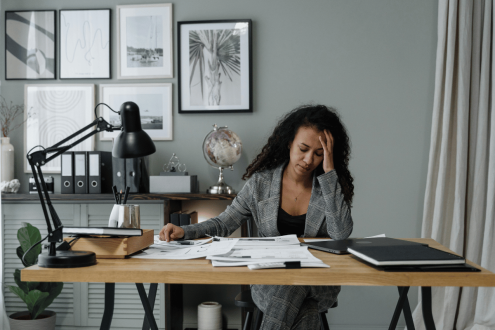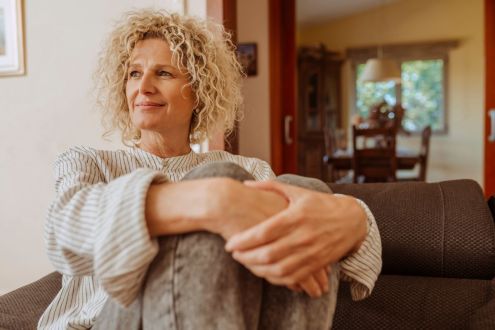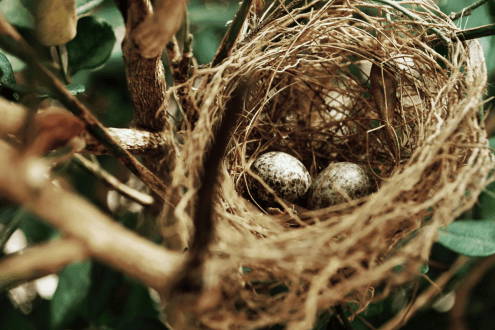Anxiety and insomnia: how to stop worrying before bed
Are you worrying right before bed, or experiencing anxiety and insomnia during the night? Discover how to feel calmer throughout the night with these top tips from Sarah Maber...
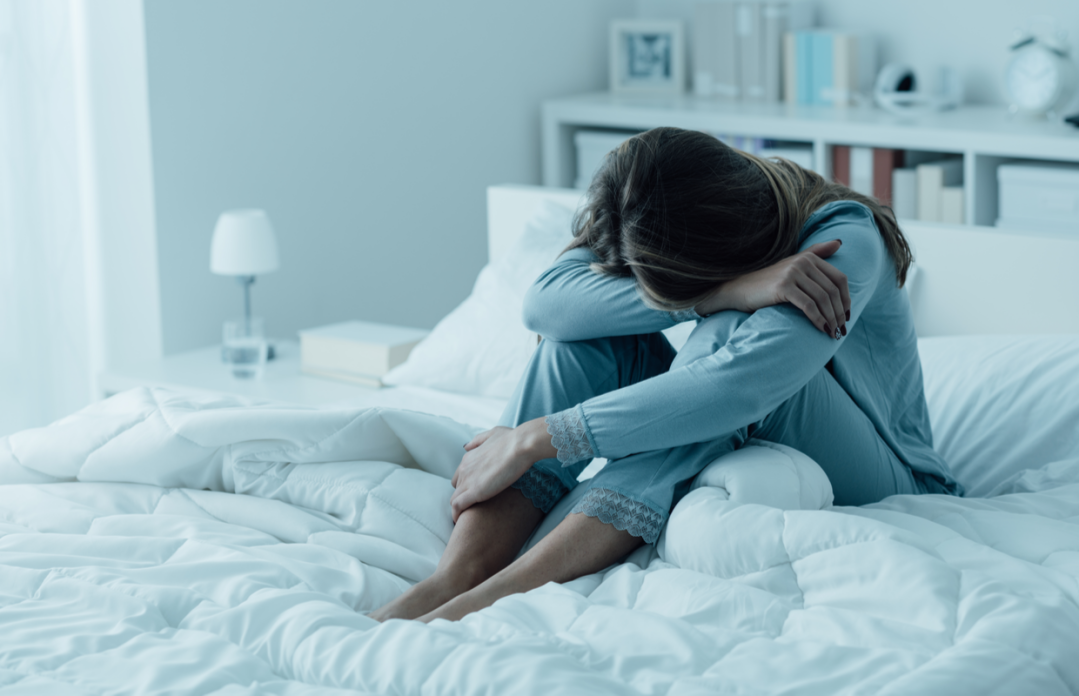
There are certain worries that only seem to strike at night. The phenomenon, often called ‘night dreads’, can creep up on us, causing us start worrying right before bed, or experiencing anxiety and insomnia during the night. Sarah Maber investigates why we tend to worry at night, before sharing some top tips to help you ease anxiety and feel calm before bed…
Lying in bed at 2.53am, flooded with anxiety, I doggedly focus on my breathing and try to stay calm – but numerous worries keep creeping through. Tonight, it’s the hairline crack in the bathroom wall – is it a sign of subsidence?
But it could just as easily be about the children’s health (a small-hours panic about possible missed vaccinations or symptoms), my tax return (what if I get hit for thousands?) or friends (did I remember to reply to the I’m-getting-a-divorce text?).
By day, I deal with any concerns with a constantly updated to-do list. But before bed, jerked from slumber and heart pounding, I catastrophise, my worrying mind a maelstrom of anxiety. And I’m not alone.
Are anxiety and insomnia linked?
The most recent Great British Sleep survey showed that one in three of us suffer from insomnia or other sleep disorders, and in a straw poll of my 30- and 40-something friends and colleagues, half of them confessed they were regularly jolted from sleep by worry.
‘If I’ve had a stressful day at work, I wake up in the night with a pounding heart absolutely convinced I’ve made a terrible mistake,’ says Jessica Lorenzo, a 42-year-old production manager. ‘It’s generally about 4am, and there’s no way I can get back to sleep until I’ve actually looked at my emails and convinced myself that everything is in order.’
Journalist Susie McLarnon, who’s a mother of two, adds: ‘Once or twice a month, I’ll wake up in the middle of the night in an absolute panic, worrying about money – have we got enough to pay the mortgage? – or the kids, or that I’ve misquoted someone in something that I’ve written and will get sued – even though I haven’t. My heart will be thumping and I’ll be genuinely terrified of the consequences of the thing that I think I’ve done. It’s magnified out of all proportion.’
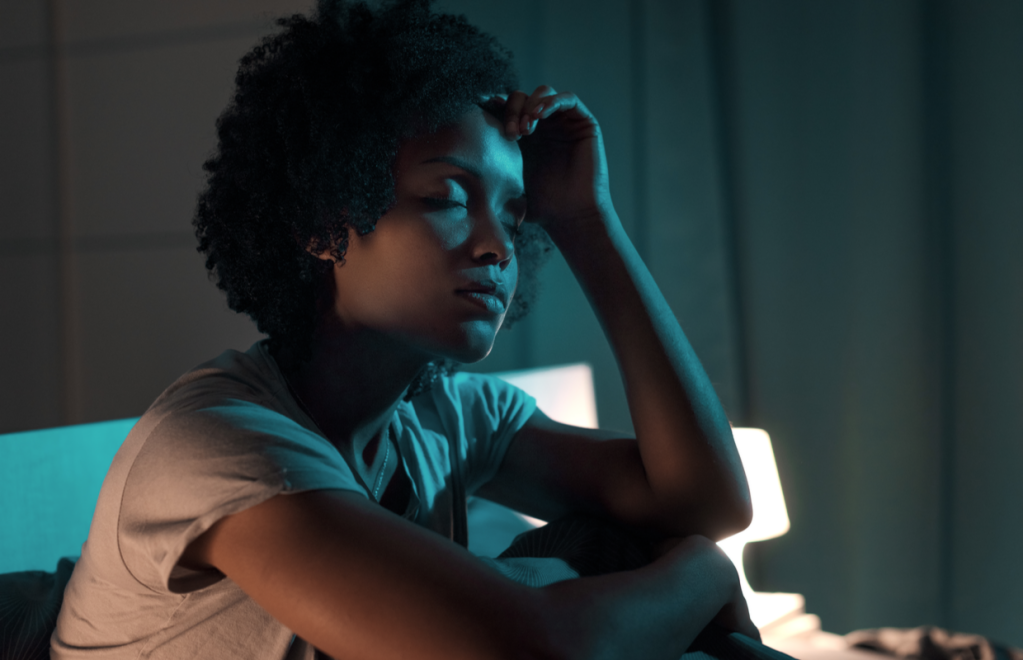
Why am I worrying before bed?
So what’s going on? Why are otherwise level-headed women waking up in the middle of the night flooded with anxiety and fear? Experts agree that anyone who is leading a fast-moving, stressful life is more susceptible to anxiety-soaked wake-ups.
‘We sleep in cycles – 90 minutes to two hours long,’ explains sleep physiologist Dr Guy Meadows, founder of The Sleep School, ‘and it’s perfectly normal to wake up. Most people aren’t aware of these cycles. You wake up, change position, then go into the next sleep stage.’
‘The evolutionary reason for those awakenings was to check for danger; looking out for any predatory animals. We have evolved to wake up and be on red alert. For a normal sleeper, if they have a really stressful day at work, or are managing something challenging in their day-to-day life, rather than slipping seamlessly from one sleep cycle to another they tend to fully wake up out of the cycle. And they can wake up fully with a feeling of dread and anxiety; in a state of fight-or-flight.’
There are times when anxiety-related night-waking can feel truly terrifying. Francesca Bridgman, a 35-year-old dentist, says: ‘When I wake up in the night, I tend to be experiencing severe existential dread that I never experience in the day time. I’m only half-awake, but I’ll have a real sense of foreboding, often vaguely linked to death and dying – things you can easily dismiss during the day.’
Can hormonal changes cause anxiety and insomnia?
Fluctuating hormone levels, particularly as women go through the menopause, can play a part in worrying before bed or experiencing anxiety and insomnia, explains women’s health expert Dr Marilyn Glenville.
‘A decline in oestrogen levels can mean that by about 3am, you get an adrenalin surge and the result is a sense of dread for no obvious reason. The symptoms are psychological, but the trigger is physical.’ A snack before bed can help to maintain blood sugar levels during the night and may also help regulate hormone levels.
How your busy lifestyle could be causing anxiety at night
Probably the biggest factor behind worrying before bed or anxiety-induced insomnia is 21st-century life, suggests Dr Nerina Ramlakhan, sleep specialist and author of Tired But Wired: How To Overcome Your Sleep Problems (Souvenir Press, £12.99).
‘A lot of people who come to my clinics are overwhelmed, stressed and busy,’ she says. ‘During the day, we are running on our conscious mind, thinking about the task in hand; but when we go to bed and sleep, all our barriers are down and we open up the subconscious. Anything that’s lurking, any gremlins, come up and are magnified.’
Also, she adds, there are key personality traits that might make you more susceptible to experiencing anxiety and insomnia at night or worrying before bed. ‘If you’re a creative person, are emotionally sensitive, and have a higher degree of empathy, you are more likely than others to experience anxious night-wakings like this.’
It wasn’t until a back operation forced McLarnon to take a month off work that her night dreads abated. ‘I think they were a sign that I really needed to slow down,’ she says. ‘There was just too much going on; I was constantly on the go, checking emails and Twitter. I’d check the newsfeeds last thing at night before I turned the light out, too. It’s been necessary for me to have a break and it’s great because I just don’t have that burning worrying before bed or anxiety and insomnia at night any more.’
Most people won’t be able to unplug as effectively as McLarnon. So, are there other ways of managing our conscious thoughts so waking up at night becomes a rarity, rather than a twice-weekly occurrence?
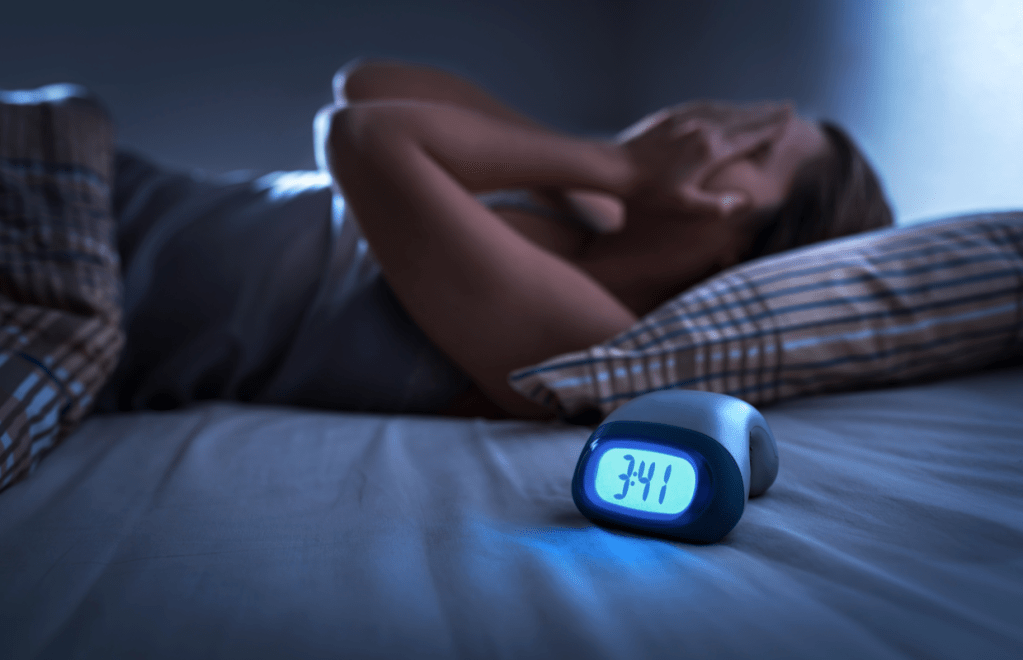
Allow yourself a ‘worrying time’ before you go to bed
Sleep therapist Kathryn Pinkham recommends a 20-minute ‘worrying time’ slot at about 8pm each evening before going to bed, where you brainstorm all the possible reasons why you might feel unsettled or anxious. ‘Write down every worry you’ve got,’ she advises.
‘Really indulge it. Put down all the “what if” scenarios, all the bad things that can happen, really go to town and get them down on paper. It works really well as a therapeutic technique because when you can see them in black and white, you feel like you’ve dealt with all your anxieties. If you do this consistently, your mind starts to expect this period of time to worry; and at night, it’s less pressing.’
Practice mindfulness to ease anxiety and insomnia at night
When you wake up at night, Meadows recommends using mindfulness to acknowledge feelings of anxiety. ‘Come into the moment,’ he says. ‘For instance, “I can feel I’m anxious in my chest and stomach”. What else can you feel? The duvet on your toes, the temperature of your bed, the mattress on your side, the movement of your breathing. Bring your mind back to the present if it wanders off.’
But the key lesson here, says Ramlakhan, is to try to become more aware of your own relationship with sleep. ‘Every human being is different,’ she says. If you are waking up in the night from worry and anxiety, ask questions about your relationship with sleep.
‘What are your sleep patterns? What’s going on in your life at the moment? What is your relationship with safety? Creativity? Are you working into the early hours? And do you use stimulants, such as caffeine and technology, late in the evening? Are you giving a lot of emotional support to those around you?
‘If you’re feeling vulnerable, you’re more likely to suffer anxiety and insomnia at night or before bed. We need peace, calm and safety to sleep deeply and peacefully through the night.’
